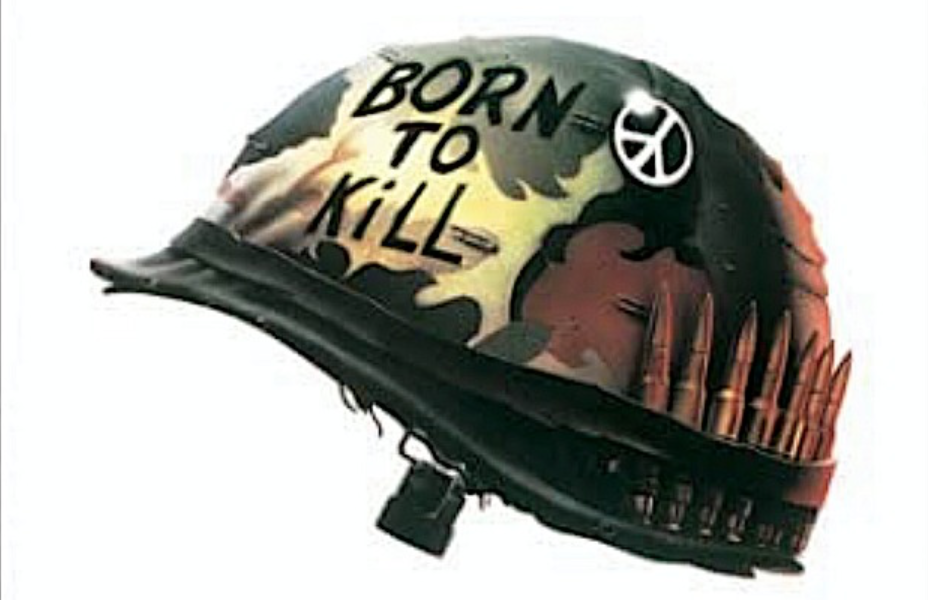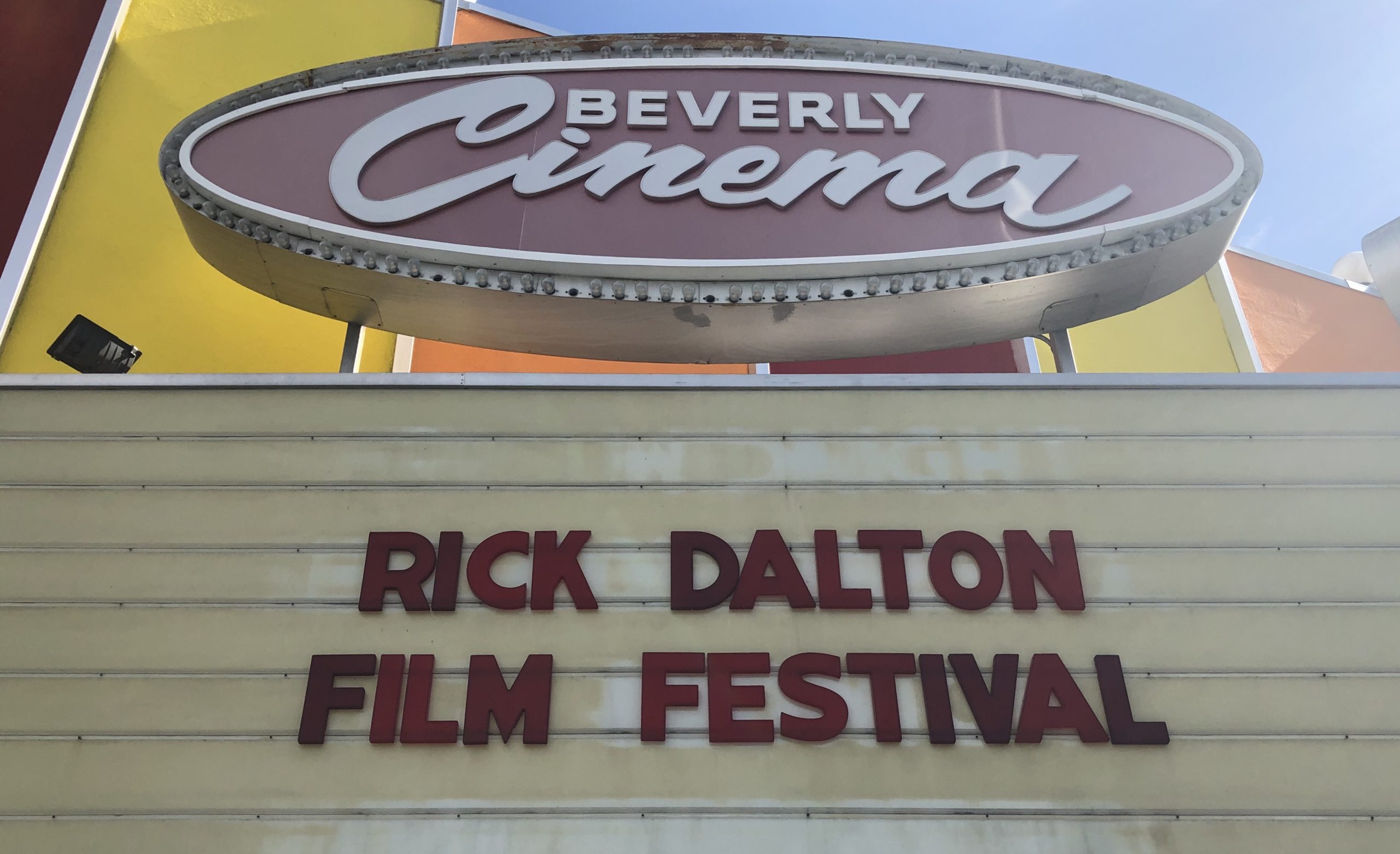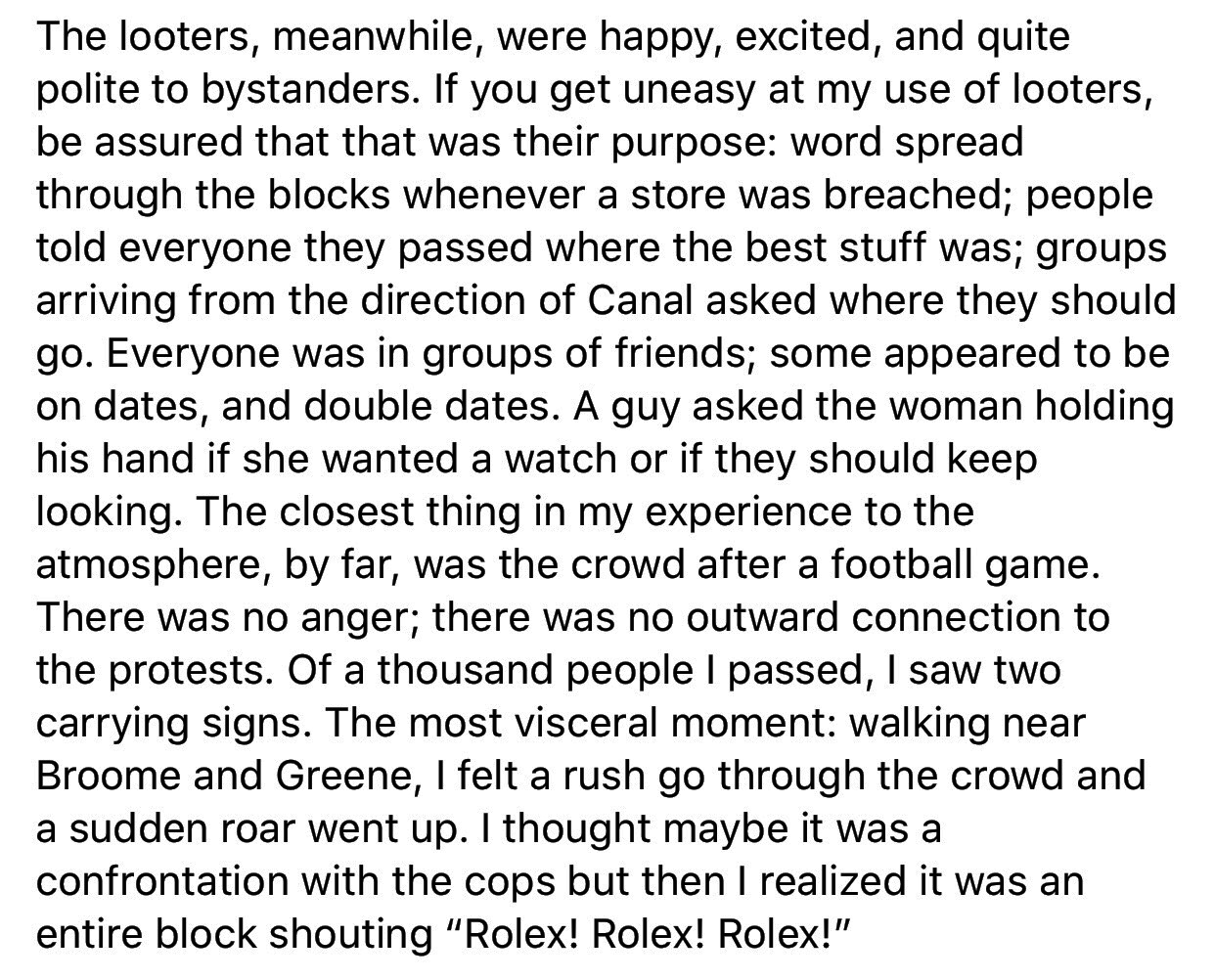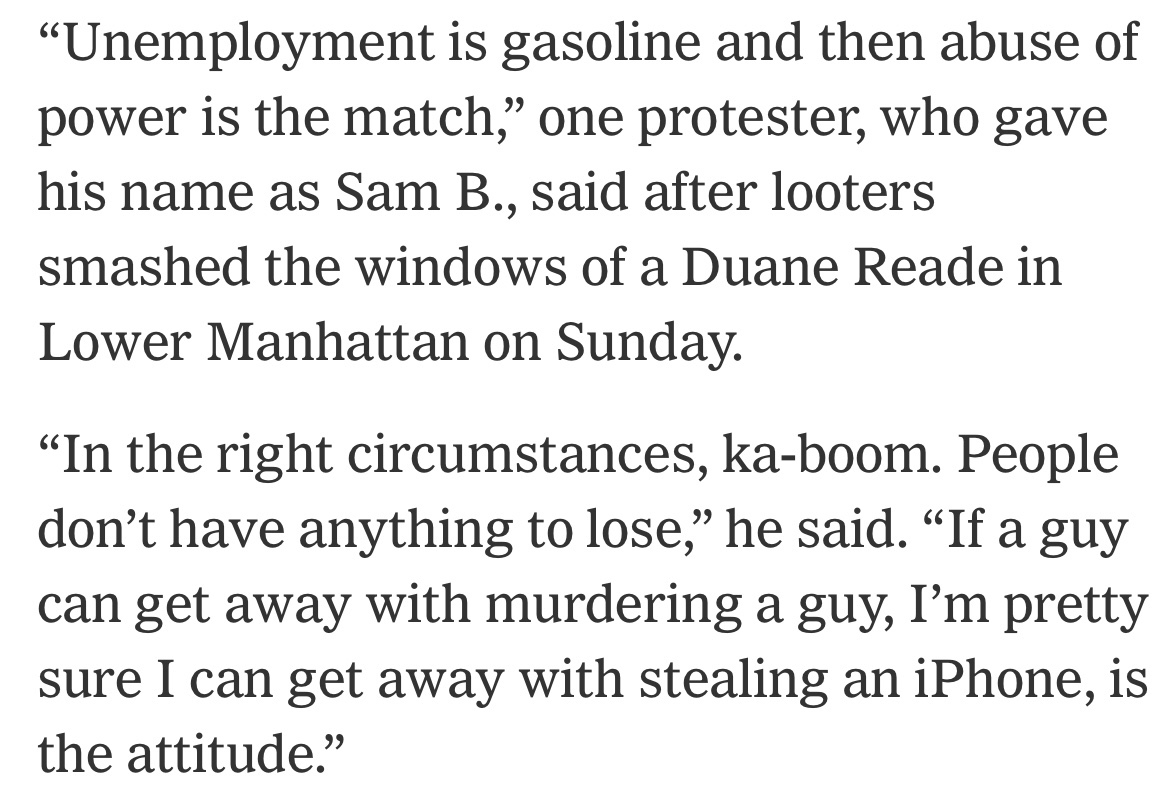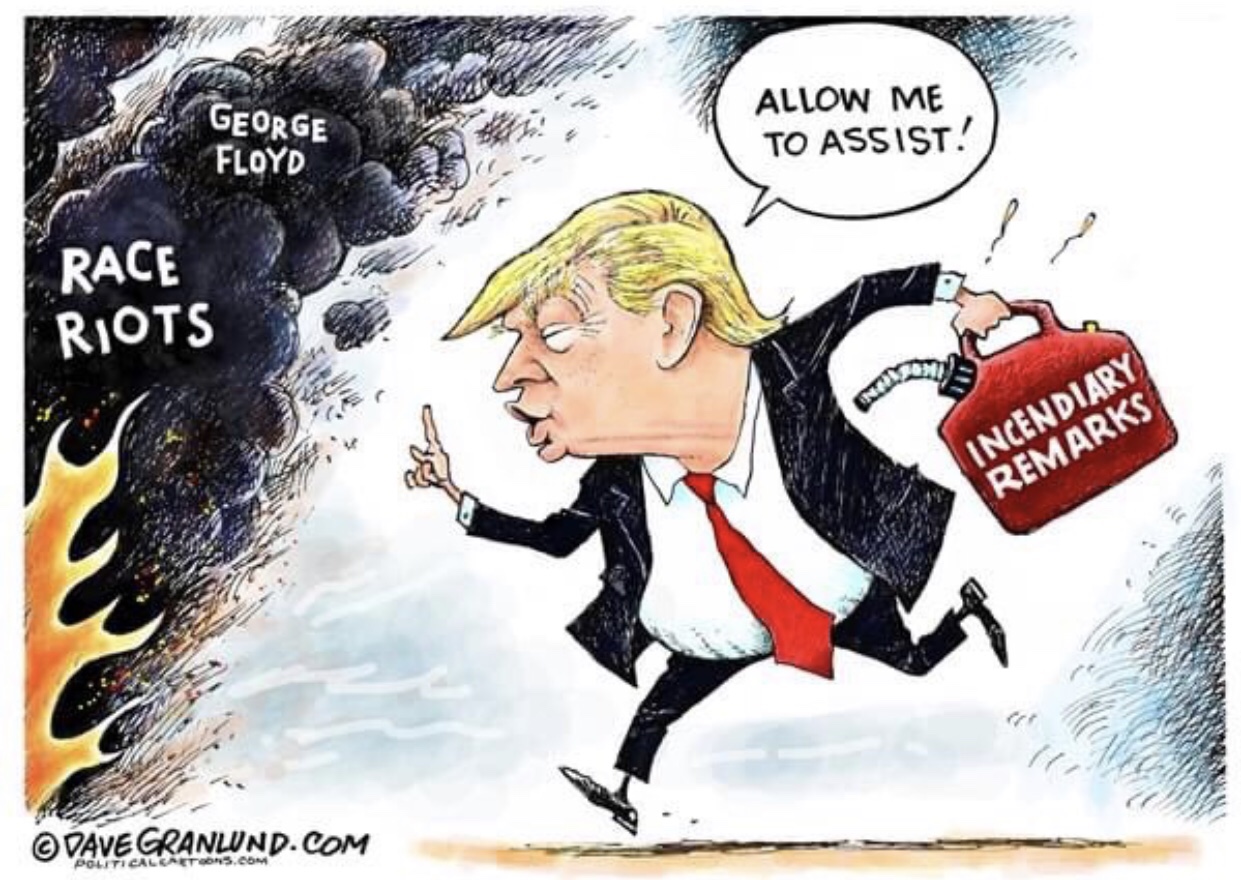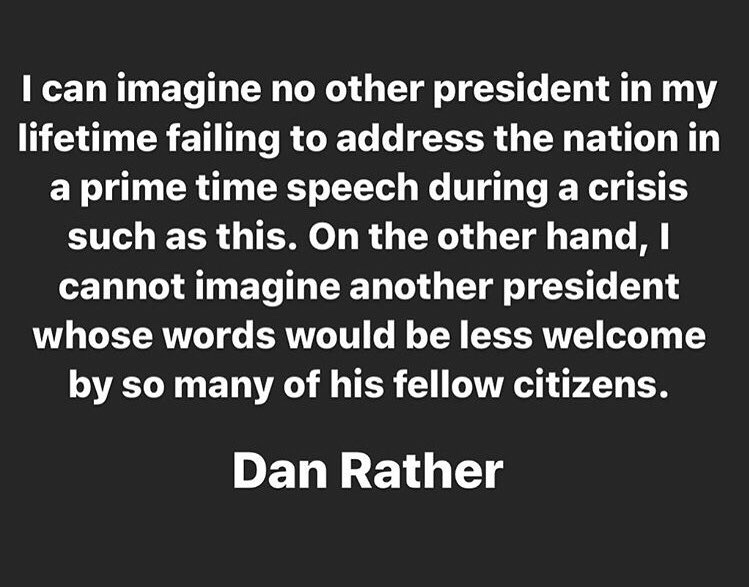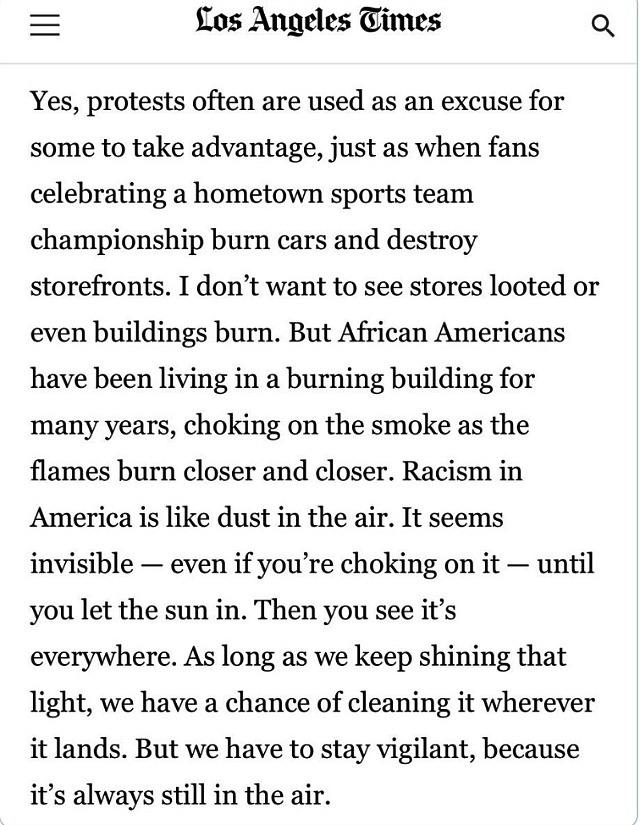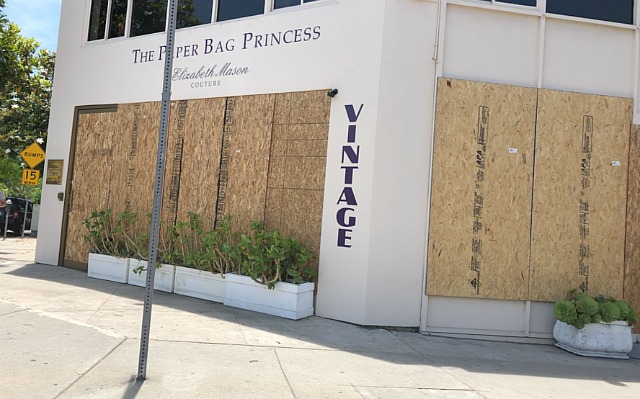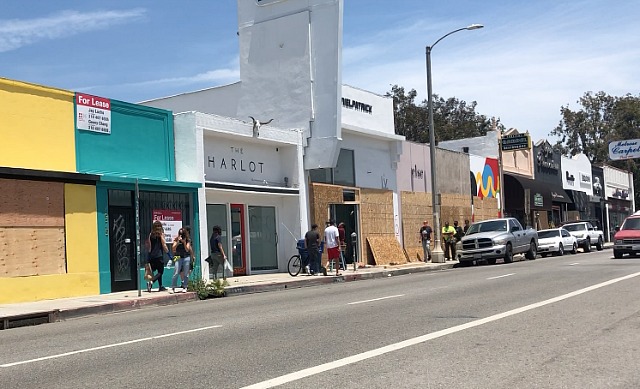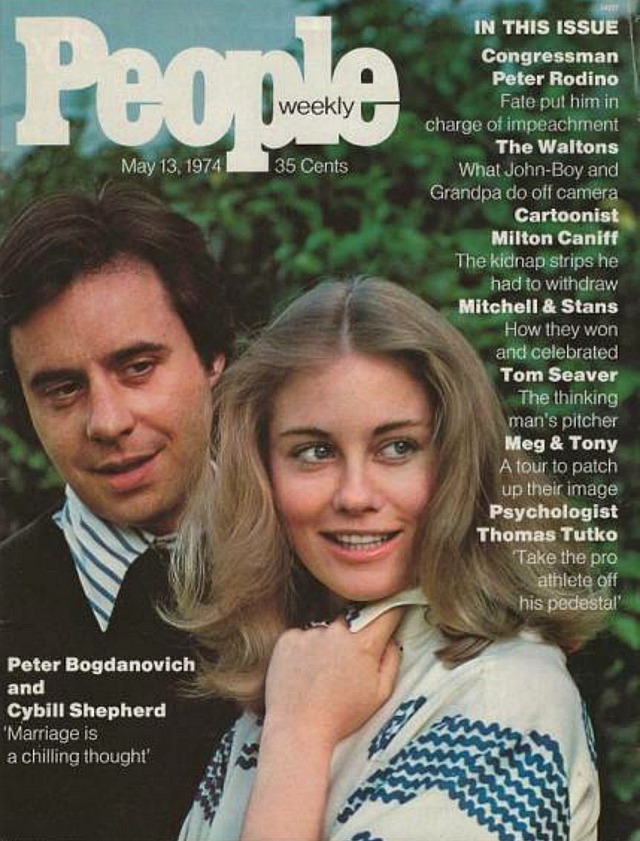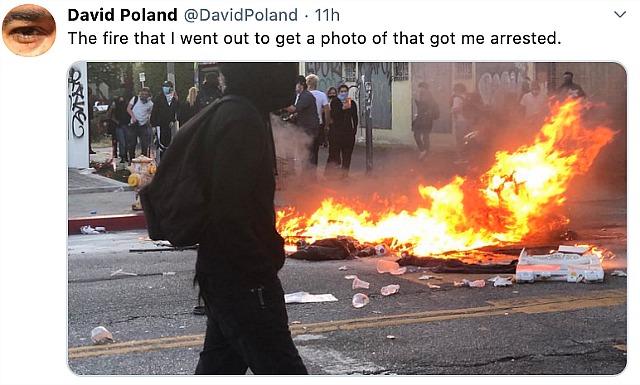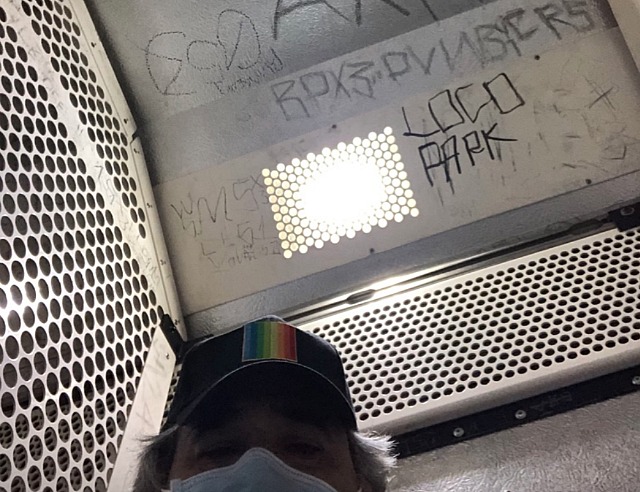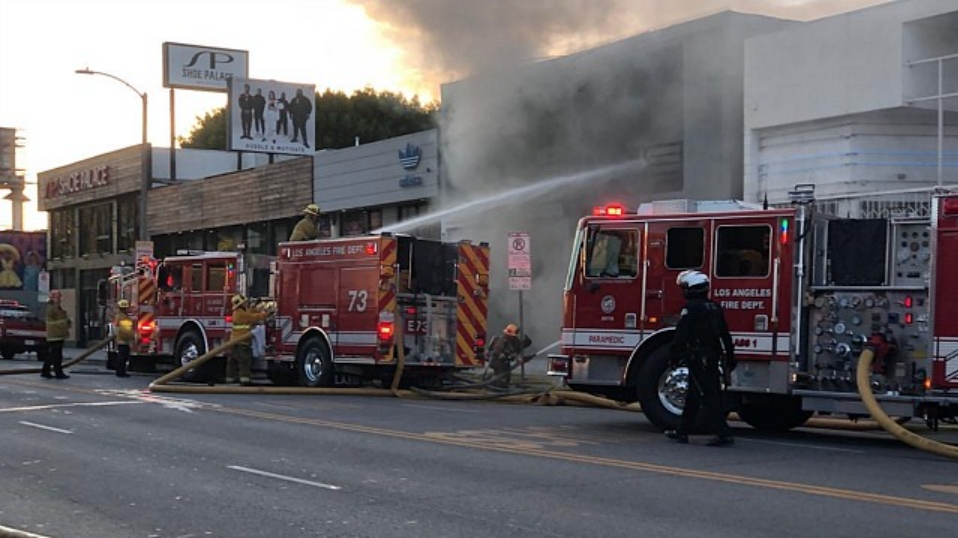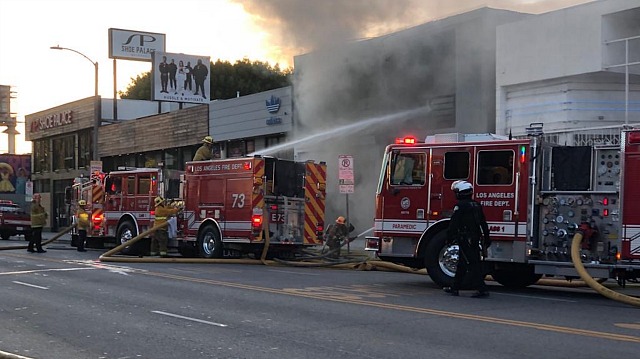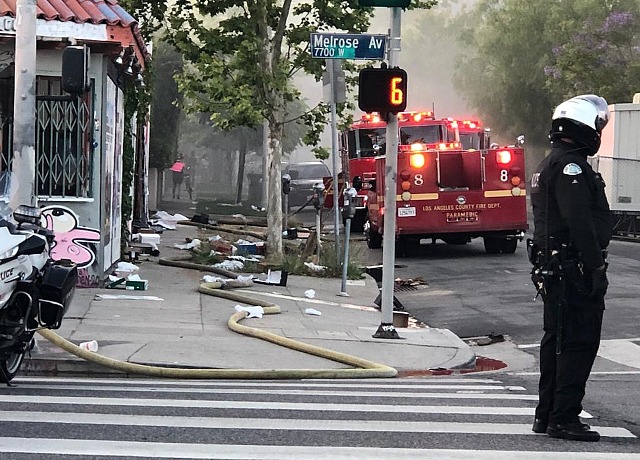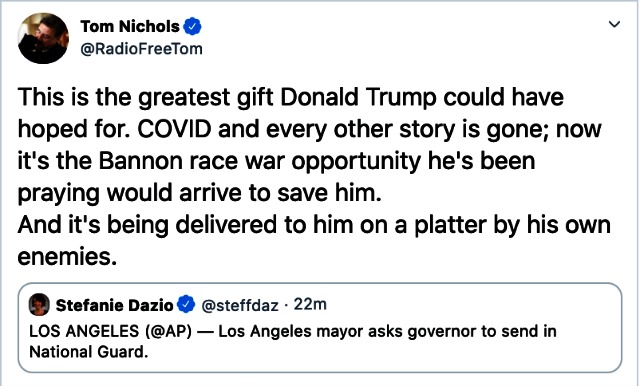Last night I was browsing through some HBO Max films, and was startled to discover that the boxy (1.37:1) version of Stanley Kubrick‘s Full Metal Jacket (’87) is being HD streamed. Which is certainly cause for celebration.
One, I hadn’t watched this version of FMJ since the early aughts, or soon after the release of the 2001 “Kubrick Collection” DVD version, which was mastered in 1.37:1. Two, until last night I’d never seen the boxy version in 1080p HD, as the ’01 DVD was naturally presented in 480p. And three, Kubrick preferred the boxy version to the cleavered 1.85, which is how 99.5% of the home viewing public has seen this Vietnam War classic.
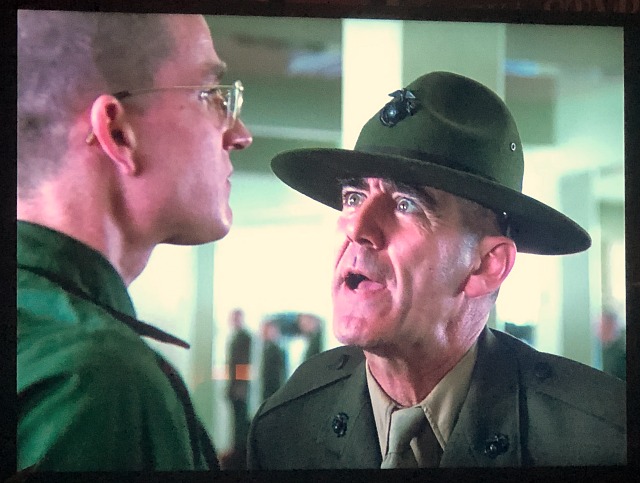
Full Metal Jacket as it currently appears on HBO Max, with a 1.37:1 aspect ratio.
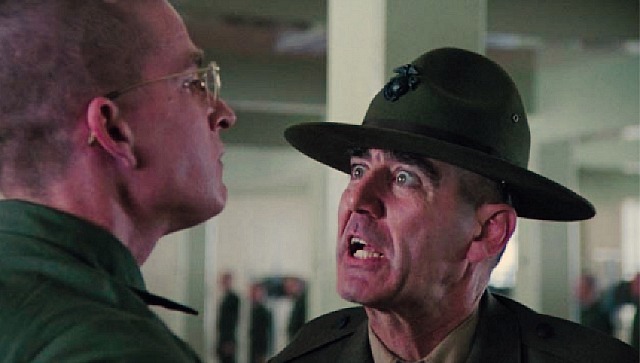
Same scene within the standard 1.85 a.r., which is how almost everyone has seen Stanley Kubrick’s 1987 Vietnam War classic over the last 15 or 20 years, give or take.
HE is advising all HBO Max subscribers to stream the boxy FMJ as soon as possible before it disappears. Because the sworn enemies of “boxy is beautiful” will be doing everything they can to erase this version, despite the fact that Kubrick personally preferred it.
Seriously, hurry. If I know Bob Furmanek and the 1.85 fascist cabal they’ll soon be hounding HBO Max to swap out the boxy with the 1.85. These guys are fanatics. They hate boxy and will stop at nothing.
Perhaps someone on the HB0 Max tech team made a “mistake” in uploading the boxy version, but it’s a good mistake, trust me.
Consider the following 2008 DVD Talk interview with longtime Kubrick employee and collaborator Leon Vitali, in which he explains Kubrick’s visual aesthetic:
DVD Talk: “One of the areas of greatest debate in the DVD community is about aspect ratios. The two films that people talk about the most in terms of aspect ratio are Full Metal Jacket and Eyes Wide Shut, maybe because those are the ones that have been seen theatrical by the DVD buying audience. But people will go through [these films] frame by frame and say ‘in the trailer of Eyes Wide Shut, you can see a sign on the street that you can’t see on the full frame video. You can see an extra character.’ So how do you address the differences between the theatrical releases of Eyes Wide Shut and of Full Metal Jacket in the DVD releases?”
Vitali: The original video release of Full Metal Jacket was in the supervised hands and owned by Stanley. The thing about Stanley, he was a photographer. That’s how he started. He had a still photographer’s eye. So when he composed a picture through the camera, he was setting up for what he saw through the camera — the full picture. That was very important to him. It really was. It was an instinct that never ever left him.

